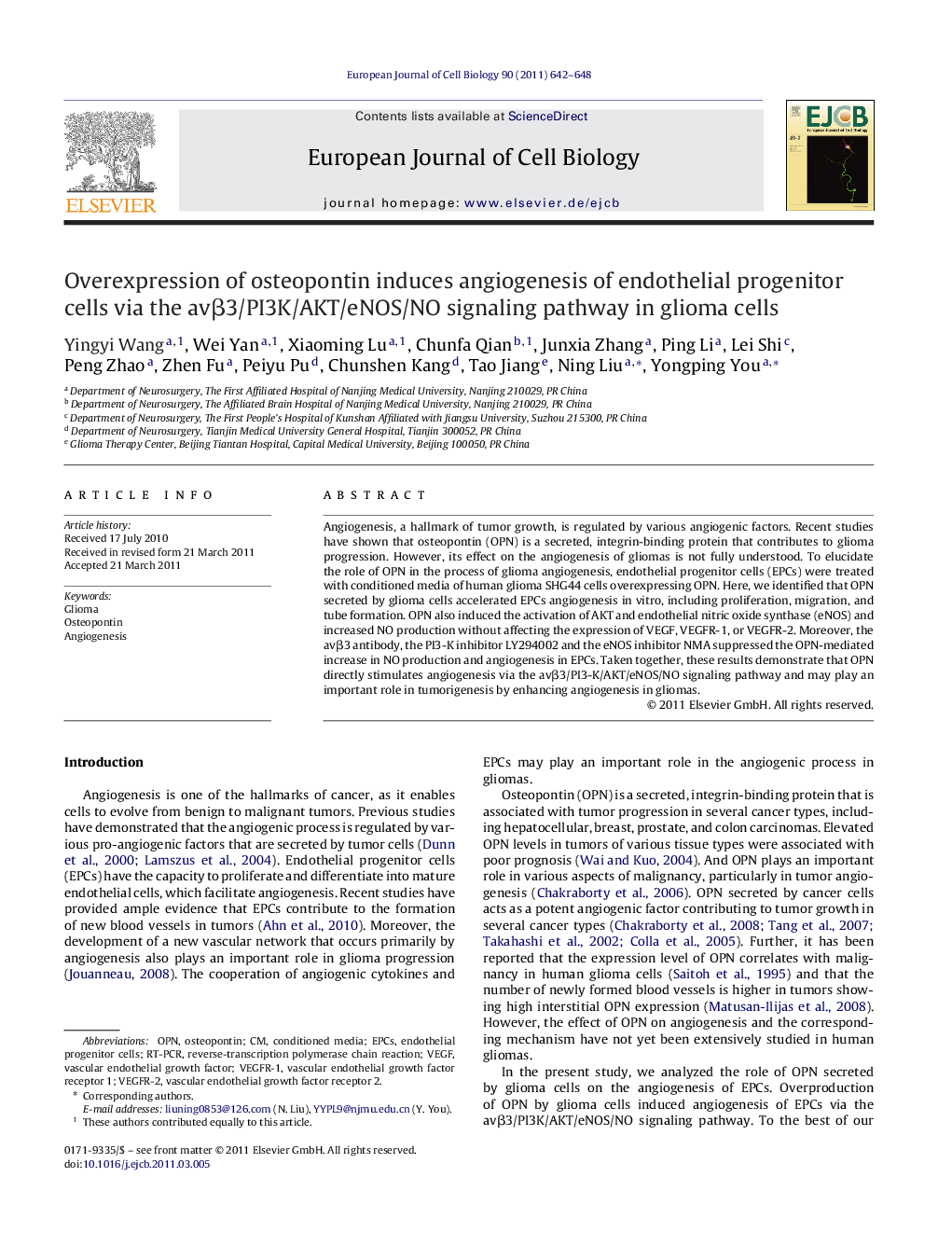| Article ID | Journal | Published Year | Pages | File Type |
|---|---|---|---|---|
| 2178738 | European Journal of Cell Biology | 2011 | 7 Pages |
Angiogenesis, a hallmark of tumor growth, is regulated by various angiogenic factors. Recent studies have shown that osteopontin (OPN) is a secreted, integrin-binding protein that contributes to glioma progression. However, its effect on the angiogenesis of gliomas is not fully understood. To elucidate the role of OPN in the process of glioma angiogenesis, endothelial progenitor cells (EPCs) were treated with conditioned media of human glioma SHG44 cells overexpressing OPN. Here, we identified that OPN secreted by glioma cells accelerated EPCs angiogenesis in vitro, including proliferation, migration, and tube formation. OPN also induced the activation of AKT and endothelial nitric oxide synthase (eNOS) and increased NO production without affecting the expression of VEGF, VEGFR-1, or VEGFR-2. Moreover, the avβ3 antibody, the PI3-K inhibitor LY294002 and the eNOS inhibitor NMA suppressed the OPN-mediated increase in NO production and angiogenesis in EPCs. Taken together, these results demonstrate that OPN directly stimulates angiogenesis via the avβ3/PI3-K/AKT/eNOS/NO signaling pathway and may play an important role in tumorigenesis by enhancing angiogenesis in gliomas.
